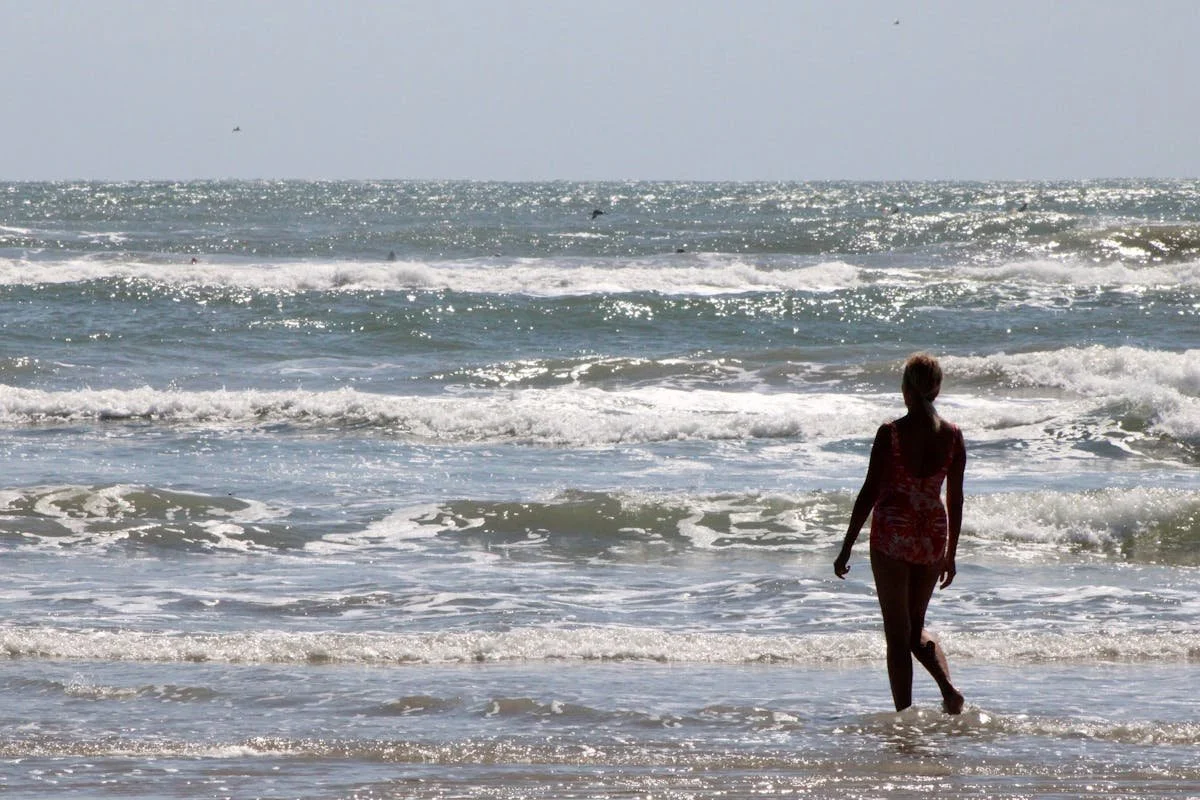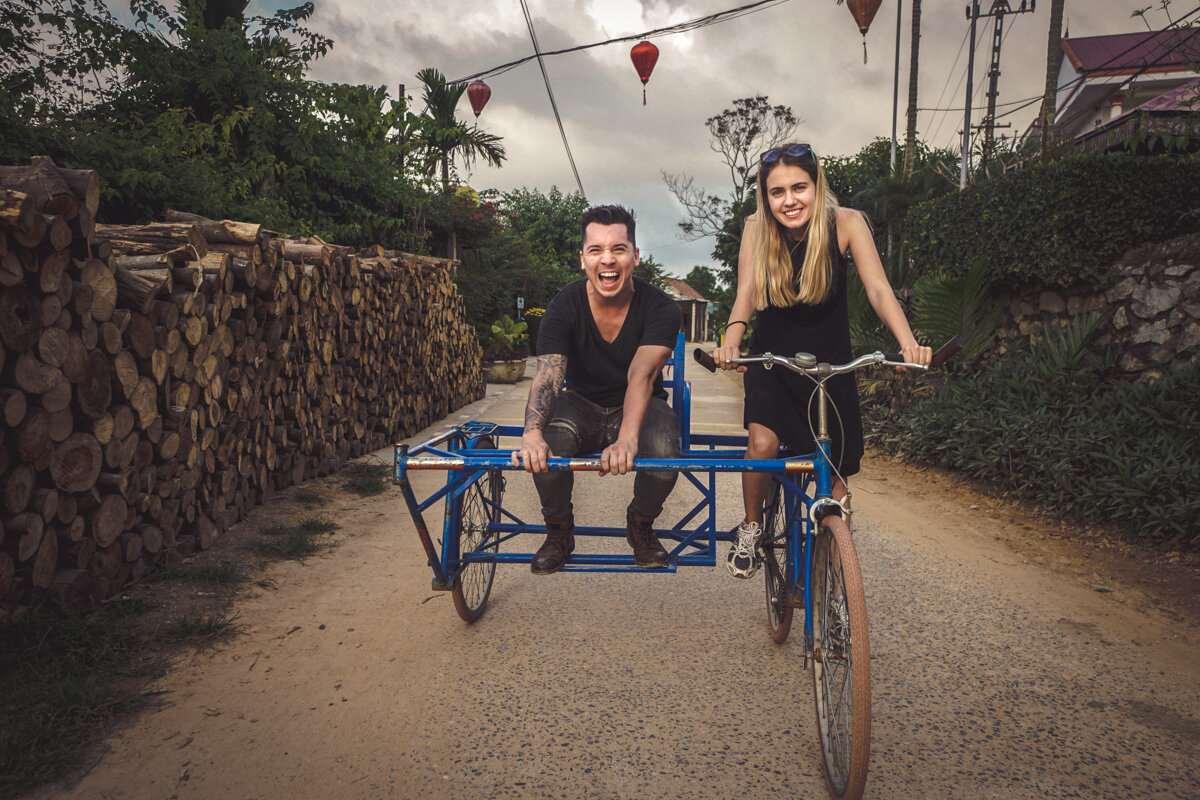10 Benefits of Outdoor Activities You Can't Overlook
/If you want a break that actually resets you, get yourself outdoors! You don’t need to plan workouts or chase steps because by doing this, movement happens on its own in a way that’s fun and enjoyable. There are a ton of great benefits to taking a break outdoors and camping, hiking, fishing, and doing all of the typical outdoorsy activities.
Let’s explore ten compelling reasons why making time outside a daily priority can change your health, mindset, and lifestyle — often in ways that indoor routines simply cannot.
1.Engaging Kids the Natural Way
Keeping kids entertained—especially in today’s screen-saturated world—can feel like a never-ending challenge. Between limited budgets, busy schedules, and a desire to create meaningful childhood experiences, parents often find themselves searching for alternatives to tablets and TV. Fortunately, the outdoors provides a powerful solution.
Nature offers endless opportunities for curiosity, creativity, and movement. You don’t need elaborate plans or expensive gear. Just incorporate simple, hands-on tasks into your outdoor routine:
Ask children to find five different leaves or three smooth stones for skipping.
Let them help pitch the tent, fill the kettle, or gather kindling for the fire.
Create a mini scavenger hunt or trail challenge to encourage observation and exploration.
These small missions transform kids into active participants, building their confidence and encouraging independent thinking—all while keeping them joyfully busy and screen-free.
2. Skill Acquisition & Hands-On Learning
Being outdoors is a chance to learn practical skills, especially for children:
Reading maps
Using a compass
Judging distance and direction
Navigating trails
Even everyday camping tasks like organizing gear, keeping the fire going, or boiling water for tea teach decision-making and problem-solving skills. Whether you’re staying at a campsite or going full wilderness style, these skills build confidence and make everyone feel capable, and they’re the sort of things you don’t usually get at home.
Parents and kids alike can bond through practical survival skills, encouraging lifelong learning and resilience.
3. Culinary Adventures & Nutritional Boosts
Who says outdoor food has to be dull? Cooking outdoors is surprisingly rewarding:
One pot dinners like stews and chillis can be prepped in advance and reheated on a campfire.
Veggies and sausages wrapped in foil cook beautifully in embers.
Even instant hot chocolate feels gourmet when sipped under a starlit sky.
Camping encourages healthier, whole-food cooking. Involving kids in meal prep, from collecting water to stirring the pot, also teaches culinary independence and appreciation for food. And yes, it tastes better outside—science agrees that fresh air enhances taste perception.
4. Immune Boosting & Reduced Inflammation
Nature does wonders for your immune system. When you spend time outdoors:
Sunlight exposure increases vitamin D production, enhancing immunity.
Physical movement decreases inflammatory markers in the body.
Regular exposure to natural environments leads to stronger immune responses.
Even minor outdoor activities, like skipping stones or helping pitch a tent, provide movement and exposure to fresh air—crucial for developing immune strength, especially in children.
These effects aren't merely anecdotal. Clinical data supports that being in green environments reduces cortisol, strengthens T-cells, and enhances resistance to illness
5. Restorative Sleep & Circadian Alignment
Daylight is one of the most natural regulators of your biological clock. When you're outside more often:
You absorb more daylight, helping regulate melatonin production.
Your body tires more naturally and sleeps more deeply.
Exposure to fresh air improves sleep quality.
Outdoor movement helps burn excess energy in children and promotes earlier bedtimes, often without the bedtime battles. After a day of hiking, exploring, and fire-watching, even the most energetic kids will be eager for rest.
6. Enhanced Cardiovascular Health
Fresh air and open trails naturally invite movement. Outdoor activities like hiking, jogging, and even brisk walking significantly improve heart health by increasing aerobic capacity and lowering blood pressure. According to research, individuals who participate in nature-based exercise experience a reduction in the risk of heart disease by nearly 30%.
Additionally, family-centered activities like camping offer passive cardiovascular stimulation. For example, tasks such as gathering firewood, setting up tents, or simply walking through uneven terrain promote circulation and endurance without feeling like a workout.
7. Elevated Self-Esteem & Personal Accomplishment
Achieving small victories in nature can transform confidence:
Climbing a hill
Completing a nature scavenger hunt
Setting up a tent without help
These wins build intrinsic motivation—the drive to do things without being asked. It’s especially powerful for kids who may struggle with traditional schooling or structured sports. Outdoors, they thrive by discovering what they can do.
Adults, too, benefit. One study found that even mild outdoor challenges result in long-lasting boosts in self-worth and optimism.
8. Social Bonding & Community Building
Outdoor activities naturally promote shared experiences, often free of distractions.
A group hike becomes a time for deep conversation.
Campsite chores foster cooperation.
Team-based activities like canoeing or trail navigation demand coordination and trust.
For children, this creates lasting social skills. For families, it deepens emotional bonds. And for friend groups, it’s a break from device-driven interaction, reconnecting people on a human level.
9. Motivation & Long-Term Habit Building
Unlike gyms, outdoor spaces provide a stimulating environment that makes it easier to stick with physical activity.
71% of people surveyed in a 2024 study said outdoor time was vital for their mental and physical well-being.
57% - deliberately adjusted routines to spend more time outside.
Outdoor exercise doesn’t feel repetitive. You’re not counting reps—you’re exploring. That mental shift makes all the difference in adherence.
10. Affordability & Accessibility for All
Outdoor activity doesn’t require expensive gear or gym memberships. It offers:
Free movement and open space
Nature-based play for kids without screen time
Opportunities for learning, fitness, and fun—all in one
From finding five different leaves to helping pitch a tent, outdoor activities are low-cost yet high-value. With a bit of planning, even modest backyards or nearby parks can become gateways to adventure.



















